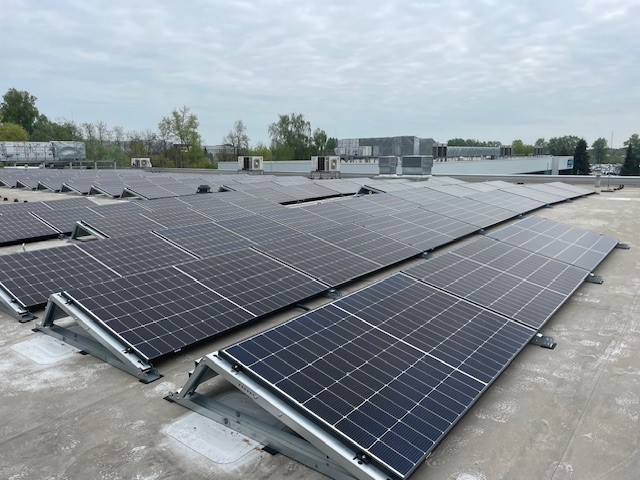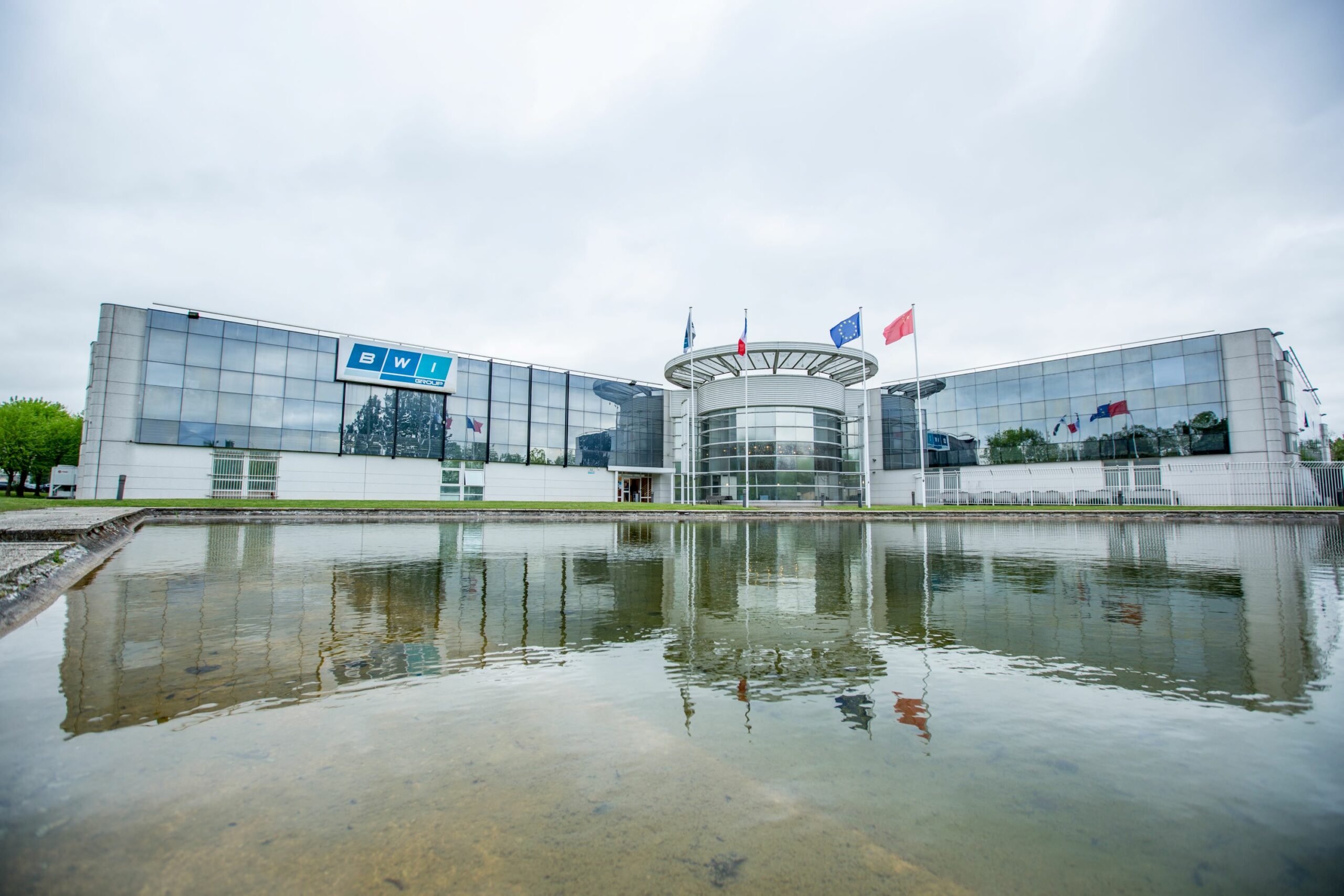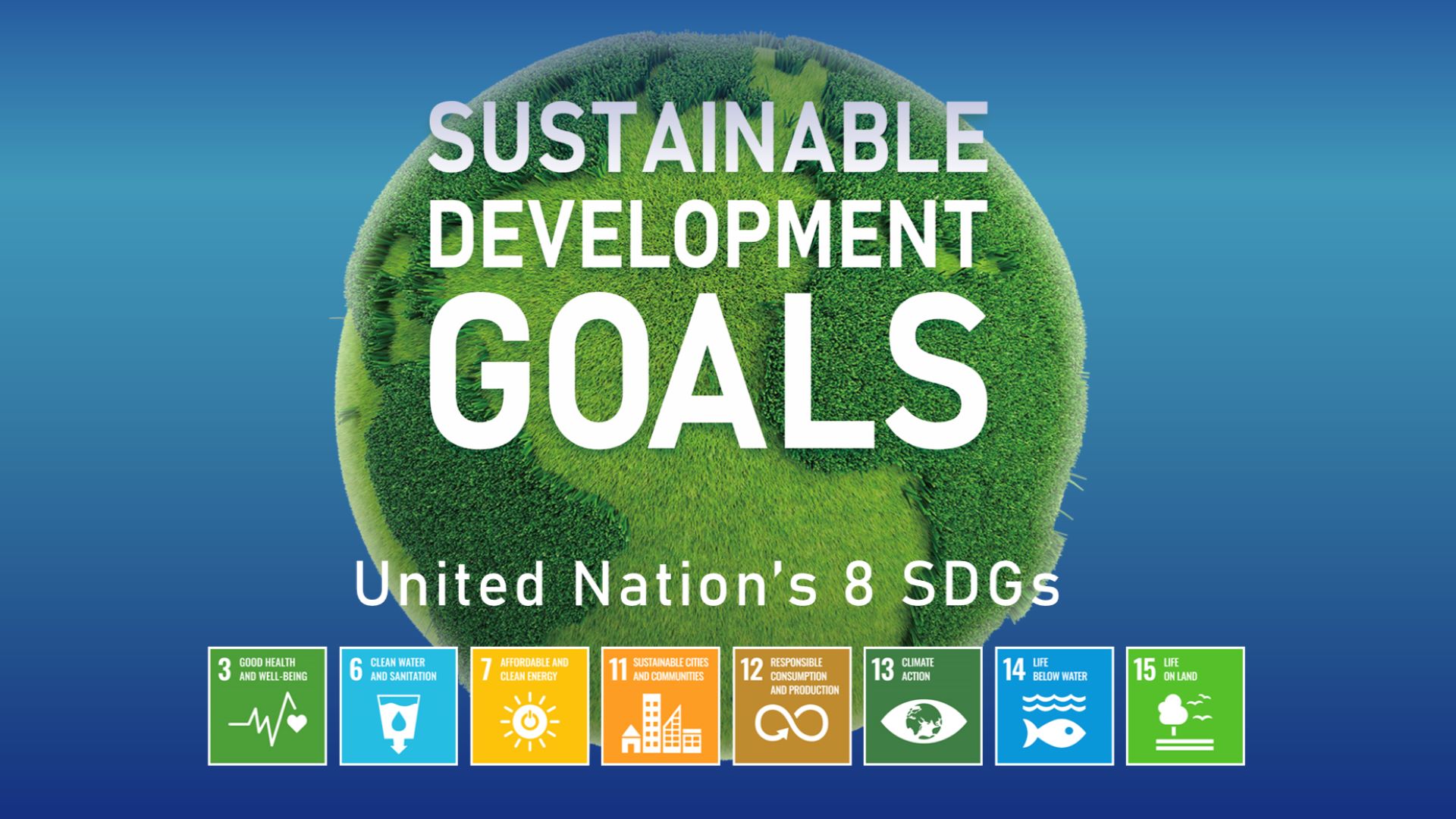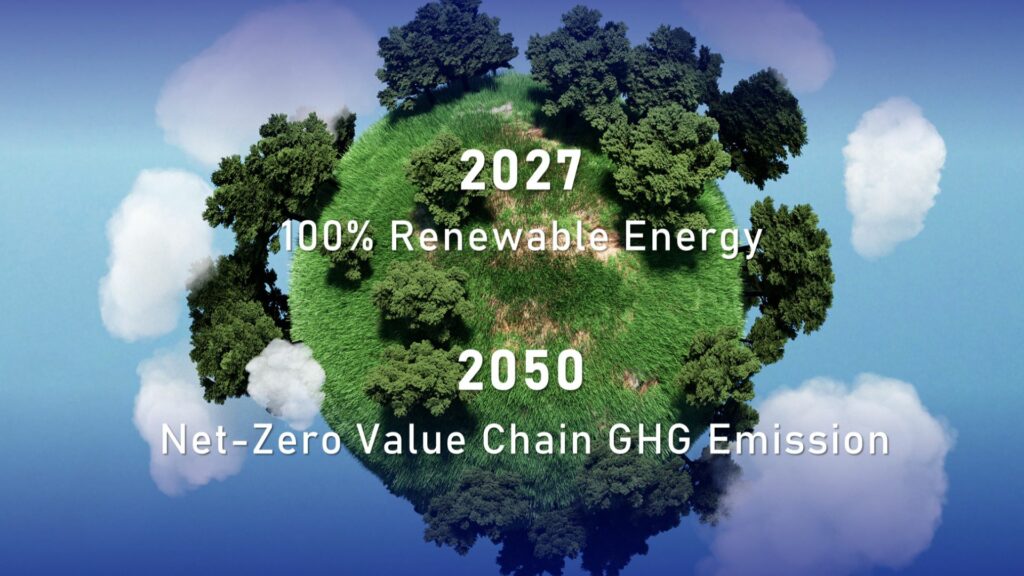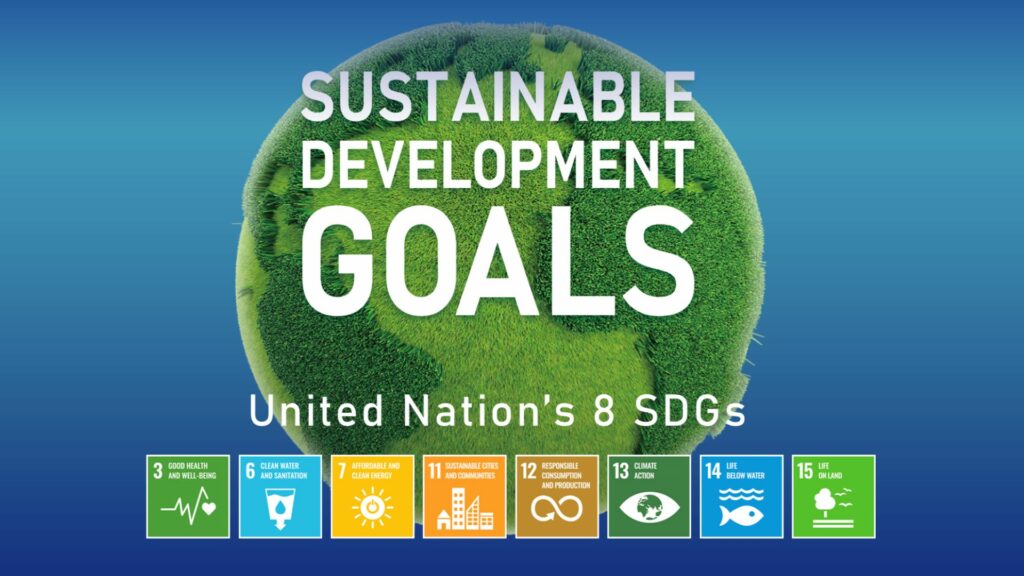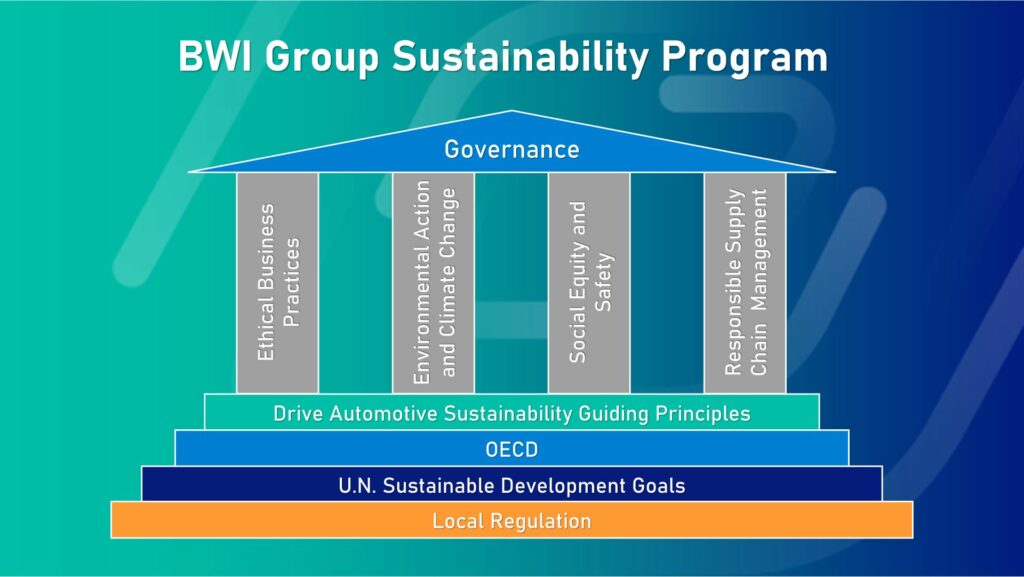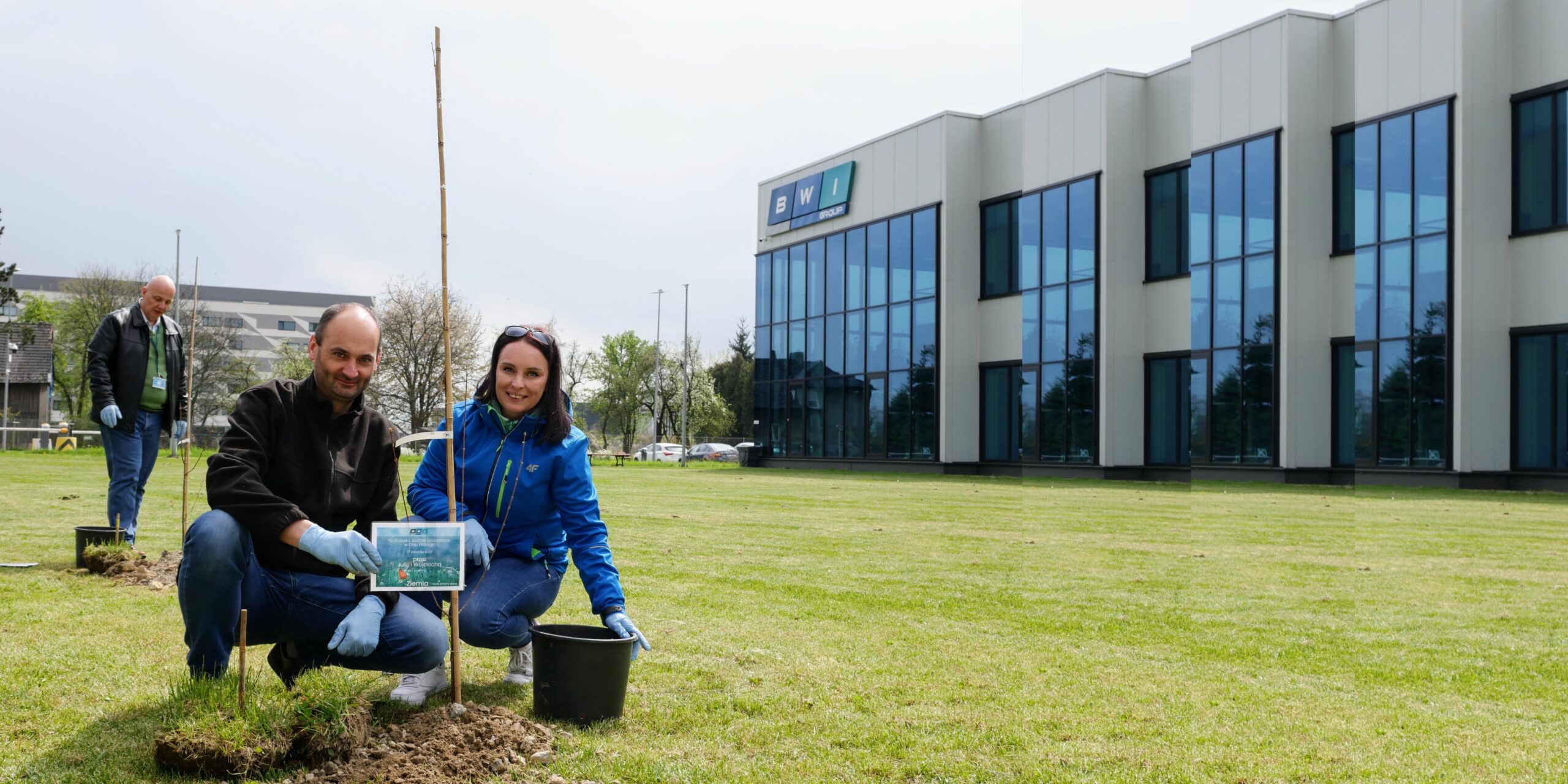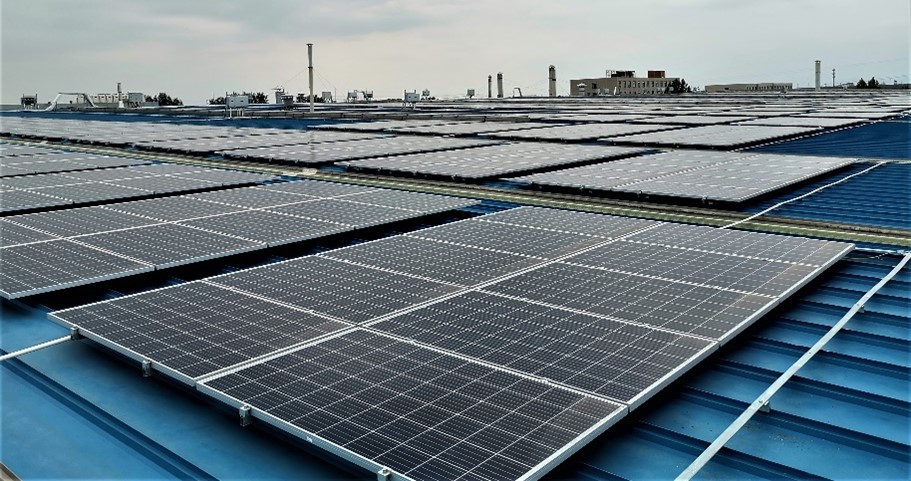Implemented by BWI Group at R&D Center
The BWI Group Research and Development Center in Balice, Poland, a northwestern suburb of Kraków, was opened in 2020. From the very beginning, the design of the facility was guided by the idea of maintaining the principles of sustainable development, which was so successful that in the same year the building was awarded first place in the 2020 Prime Property Prize competition in the Green Building category. At the very beginning, good pro-ecological practices were introduced, and the course continues to this day.
The building in which the BWI Group Research and Development Center operates is equipped with a trigeneration combined cooling, heating, and power (CCHP) system. It is a modern gas-powered power generator enabling optimal management of utilities by heat recovery from the engine, which is used to regulate the temperature in the rooms: heating through a heat exchanger, cooling through an absorption unit. Planned improvements will soon extend the functionality of the system to include heat recovery for cooling machines in laboratory areas. It is here that cogeneration was used for the first time in an office and laboratory unit in the BWI building.
Several other pro-ecological solutions and initiatives have been implemented:
In the common rooms, automatic light sensors have been installed. These sensors regulate consumption depending on the intensity of natural light and the presence of personnel.
Throughout the building, water valves in social rooms automatically shut of in the event of not closing the valve (tap), protecting against the waste of precious water resources.
Air conditioning has been limited to working hours only. This is sufficient to ensure the comfort of room users. In off-hours, air conditioning is shut off.
A flower meadow is maintained in the immediate vicinity of the building, positively impacting the daily functioning of the staff with its greenery and colorful mix of flowers. Interesting insect houses are present next to the meadows, which is very conducive to preserving the natural environment.
For bicycle commuters, BWI Group provides a very spacious shelter with various types of bicycle racks. Cyclists have at their disposal changing rooms, showers, hair dryers and clothes dryers. In addition, many BWI Group employees regularly take part in the annual NCU Bike to Work campaign, in which the most persistent cyclists are rewarded. BWI Group also sponsors riders with cycling T-shirts and sweatshirts.
In May 2023, the first BWI Group Ecology Day was organized. As part of the day, volunteer employee crews cleaned rubbish from the areas directly adjacent to the BWI Group facility. Additionally, 14 new trees of various varieties were planted.
Steps are being taken to eliminate plastic in the facility’s immediate surroundings. Plastic water cups have been replaced with ceramic ones. Employees received a commemorative mug with their initials from the company at the annual company party.
In our company canteen we have placed information about the amount of CO2 generated by the preparation of a specific dish. In this way, we build awareness of the impact that each of us has on the environment.
The company car fleet now includes hybrid vehicles so that employee business trips may be done with an eye towards generating the lowest possible exhaust emissions.
Energy consumption is closely monitored on an ongoing basis so that our facilities operate in the most sustainable and efficient ways possible. For example, test machine operation is optimized to minimize energy consumption and maximize savings.
The facility is certified according to the BREEAM standard, a system used to assess and improve the environmental, social, and economic sustainability of business assets at every lifecycle.
